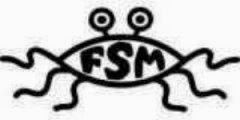 I am optimistic (and hopeful) that one of the key tenets of scientific investigation, "evidenced-based decision making" will be extended to all aspects of modern society. J . Craig Venter
I am optimistic (and hopeful) that one of the key tenets of scientific investigation, "evidenced-based decision making" will be extended to all aspects of modern society. J . Craig VenterClimategate was a powerful distraction at Copenhagen but willful denial in the face of science was worse: the primary example being the now scientifically out-dated and indefensible 2C - 450 ppm precautionary ceiling on our actions which was to be the basis for agreement instead of the more scientifically precautionary 1.5C - 350 ppm. But evidence-based decision making was trumped by the political art of the possible - hence 2C - 450 - and then in the hard negotiating it wasn't possible to agree to effective mitigation for even 2C - 450 and so we're headed instead for 3.5C - 550 or more and we all lose.
We have to do better. I think that the science and enviro community can use digital tech to speed up and focus the peer review process in a competition that could get both specialists and publics much more on the same page about climate change dangers and mitigation paths.
"We need to push harder for an education system that teaches evidence-based decision making while we hold our public leaders to a higher standard and less partisan behavior as we attempt to tackle some of the historically most difficult challenges facing the future of humanity." J. Craig Venter
Here's my (optimistic) first week of the New Year letter to the appropriate Google executive:
Hello Google,
I have an idea for a relatively cheap and easy techno leap that could greatly benefit mankind and I can describe it for you in a paragraph:
You should design/build/operate a website/portal/wiki: Is Climate Change An Emergency? soliciting and posting dueling science and perspectives to use the globe's expertise to determine if climate change is an emergency. Not so much a yes it is an emergency - no it isn't shouting match, but the innovation and wisdom of the globe's best and brightest detailing how we can know if it is an emergency or not and, maybe, providing probabilities that we can all understand and accept as the best informed analysis of the dangers. (With provision to evolve into the site leading in exploring the best path(s) or policies to take urgently if the answer proves to be yes.)
I hope you will play with that idea and consider possibilities. For only one design approach, if you see merit, consider approaching the AAAS or the National Academy of Sciences or Britain's Royal Society (for English) to co-design and be responsible for a controlled access wiki peer review procedure which would ensure scientific accuracy while still allowing open access for diverse opinions - if they are falsifyable or built upon credible science.
We can get better fast at getting all on the same page about climate change. (Better plan for a site in Chinese too.) Thanks, Bill
by: Bill Henderson of Pacific Fringe


